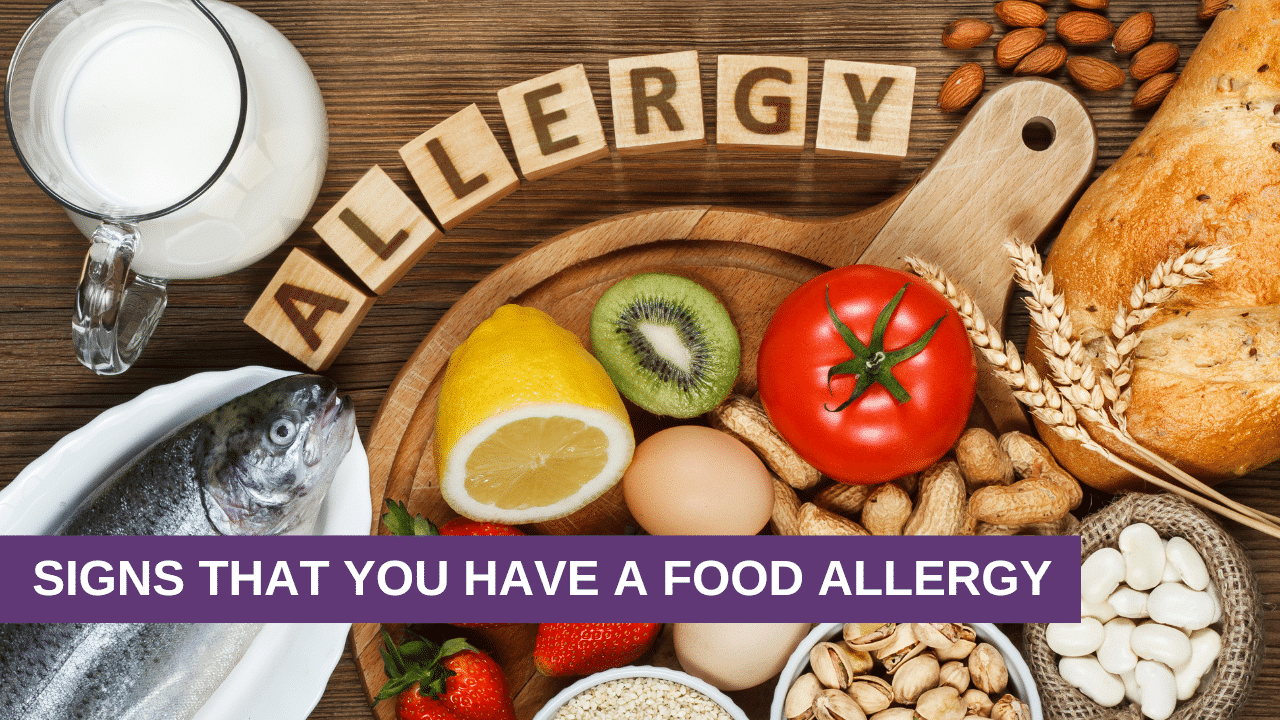What are the signs that you have a food allergy? Let’s talk about it.
Food allergies affect many people. In self-reports 11-19% of adults and 1 out of 13 children report food allergies. The prevalence of IgE-mediated food allergies in the United States at 3.5 – 4.0% of the overall population.
Many people believe that they might have food allergies, when in fact they might have food sensitivities.
What’s the difference?
A true food allergy is what’s called an IgE-mediated reaction. An IgE-mediated reaction to any substance whether it be food, inhalant, contact or medication will lead eventually to an anaphylactic reaction. An anaphylactic reaction involves severe tissue swelling, trouble breathing, severe rashes, and can be lethal.
Food sensitivities are a little bit different.
Most people who report food allergies actually have IgG reactions. IgG reactions are basically hypersensitivity to foods. You may develop IgG reactions to foods you’ve been eating quite a lot. IgG reactions to food may induce rashes, nasal or sinus congestion, and even some wheezing if you’re asthmatic. These food sensitivities will not cause an anaphylactic reaction.
Most of the time when you have a true IgE-mediated food allergy, you will react to your allergen very quickly, sometimes within minutes. The first time may be swelling of your lips and tongue, leading to difficulty breathing. This is a true emergency. If you have IgE-mediated food allergies to shellfish, peanuts, or whatever, you should be carrying an epinephrine pen that you can inject immediately upon reacting to the substance since the reactions are life-threatening.
Food sensitivities are not lethal. Fortunately, you can get over hypersensitivity to any food. When you support your hypothalamus nutraceutically, your immune sensitivity tends to be dampened somewhat so you’re not so hypersensitive. Your immune system is on hyper-alert when your hypothalamus is out of balance.
Food sensitivities are often encountered when your HPA axis is overfiring. That means stress has caused your hypothalamus to over-activate your adrenals which then affects your immunity leading to hypersensitivity.
Supporting your hypothalamus with Genesis Gold® will help mitigate the overactive HPA axis.
If you have any sensitivities to the ingredients in Genesis Gold® then using the Sacred Seven® hypothalamic amino acids for the first few months can actually dampen your hyper-sensitivity and eventually, you’ll be able to take the full Genesis Gold® formula and be able to eat some of the foods that you had not been able to eat previously.
The first thing you need to do is erase the memory from your white blood cells. That means avoiding the foods that you’re sensitive to for at least six to eight weeks. And while you’re doing that – support your hypothalamus with Sacred Seven® amino acids or the full Genesis Gold® formula to actually help your hypothalamus calm down your hypersensitive immune system.
Now, some people have food sensitivities because they have what’s called leaky gut syndrome, meaning that the epithelial lining of their colon is very, very thin, allowing waste products to get into the bloodstream and creating hypersensitivity reactions. If that’s the case, then healing the gut lining is necessary.
If you have any questions about food allergies, please join us in our Hormone Reboot Training.
Resources:



0 Comments